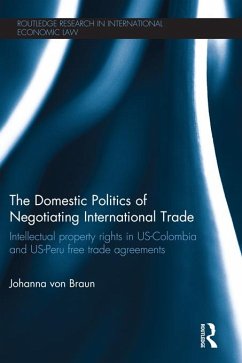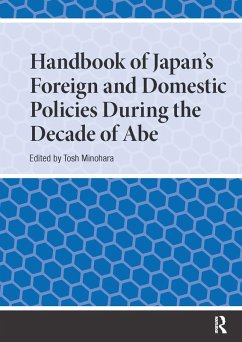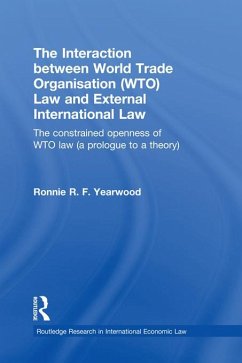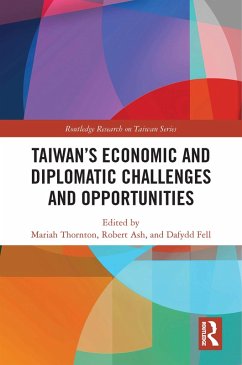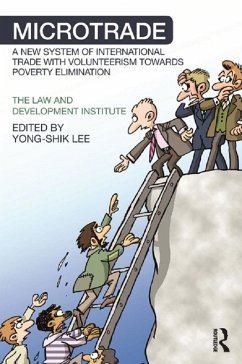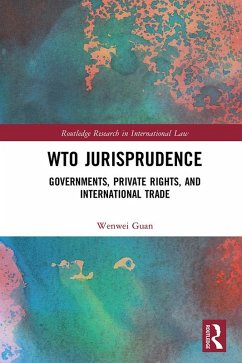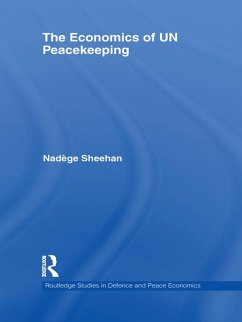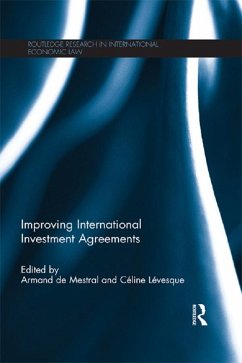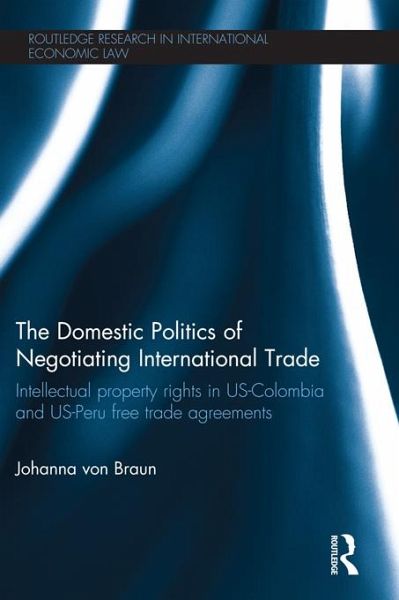
The Domestic Politics of Negotiating International Trade (eBook, ePUB)
Intellectual Property Rights in US-Colombia and US-Peru Free Trade Agreements
Sofort per Download lieferbar
29,95 €
inkl. MwSt.

PAYBACK Punkte
15 °P sammeln!
The Domestic Politics of International Trade considers the issues surrounding intellectual property rights in international trade negotiations in order to examine the challenges posed to domestic policy-makers by the increasingly broad nature of Free Trade Agreements (FTAs). Throughout the book the author demonstrates the importance of domestic politics in understanding the nature and outcome of international negotiations, particularly as they relate to international economic diplomacy.The book looks in detail at the intellectual property negotiations which formed part of the US-Peru and US-Co...
The Domestic Politics of International Trade considers the issues surrounding intellectual property rights in international trade negotiations in order to examine the challenges posed to domestic policy-makers by the increasingly broad nature of Free Trade Agreements (FTAs). Throughout the book the author demonstrates the importance of domestic politics in understanding the nature and outcome of international negotiations, particularly as they relate to international economic diplomacy.
The book looks in detail at the intellectual property negotiations which formed part of the US-Peru and US-Colombia Free Trade Agreements and analyses the extent to which public health authorities and other parties affected by the increased levels of intellectual property protection were integrated into the negotiation process. The book then juxtaposes these findings with an analysis of the domestic origins of US negotiation objectives in the field of intellectual property, paying particular attention to the role of the private sector in the development of these objectives. Based on a substantial amount of empirical research, including approximately 100 interviews with negotiators, capital based policy-makers, private sector representatives, and civil society organisations in Lima, Bogotá and Washington, DC, this book offers a rare account of different stakeholders' perceptions of the FTA negotiation process. Ultimately, the book succeeds in integrating the study of domestic politics with that of international negotiations.
This book will be of particular interest to academics as well as practitioners and students in the fields of international law, economic law, intellectual property, political economy, international relations, comparative politics and government.
The book looks in detail at the intellectual property negotiations which formed part of the US-Peru and US-Colombia Free Trade Agreements and analyses the extent to which public health authorities and other parties affected by the increased levels of intellectual property protection were integrated into the negotiation process. The book then juxtaposes these findings with an analysis of the domestic origins of US negotiation objectives in the field of intellectual property, paying particular attention to the role of the private sector in the development of these objectives. Based on a substantial amount of empirical research, including approximately 100 interviews with negotiators, capital based policy-makers, private sector representatives, and civil society organisations in Lima, Bogotá and Washington, DC, this book offers a rare account of different stakeholders' perceptions of the FTA negotiation process. Ultimately, the book succeeds in integrating the study of domestic politics with that of international negotiations.
This book will be of particular interest to academics as well as practitioners and students in the fields of international law, economic law, intellectual property, political economy, international relations, comparative politics and government.
Dieser Download kann aus rechtlichen Gründen nur mit Rechnungsadresse in A, B, BG, CY, CZ, D, DK, EW, E, FIN, F, GR, HR, H, IRL, I, LT, L, LR, M, NL, PL, P, R, S, SLO, SK ausgeliefert werden.




